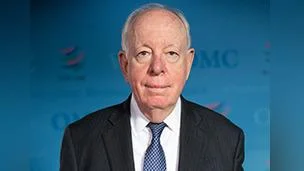The intersection of trade and disability inclusion was the focus of a hybrid event held on the International Day of Persons with Disabilities. The session aimed to address the needs and perspectives of individuals with disabilities in global trade discussions.
An official opened the event, emphasizing that "globally, one in six adults lives with some form of disability." Despite their significant numbers, people with disabilities are often overlooked in economic policy dialogues. This oversight not only affects them but also hampers overall economic growth by limiting productive contributions from a large segment of the population.
The World Trade Organization (WTO) marked this day by raising awareness about daily challenges faced by persons with disabilities. An internal event highlighted leadership through empathy and inclusion. Staff members participated in an initiative led by an intern using a wheelchair to experience accessibility challenges firsthand.
Trade policies have the potential to dismantle systemic barriers for individuals with disabilities, providing opportunities for employment and participation. Disability-inclusive trade policies can eliminate discriminatory practices and reduce bias. Examples include Jamaica's amendment to its Copyright Law to enhance accessibility for those with visual or hearing impairments, and Ukraine's efforts to integrate persons with disabilities into economic life amid ongoing conflict.
Governments can take further actions such as removing duties on goods designed for people with disabilities, thereby improving access to essential tools like screen readers and adaptive keyboards. The digital transformation presents additional opportunities for inclusive growth through accessible marketplaces.
Research indicates gaps in integrating disability considerations into trade policies. Bridging these gaps aligns with WTO objectives: raising living standards, promoting full employment, and advancing sustainable development.
The Ambassadors of South Africa and Finland were acknowledged for their active participation in leading this initiative. Additionally, an informal Inter-Agency Working Group on Trade and Disability Inclusion has been established at a staff level within WTO organizations.
The session served as a platform for sharing knowledge on how trade can drive inclusive growth. Participants were encouraged to think boldly about advancing disability inclusion in international trade.
In closing remarks, it was noted that "the work we are doing has the potential to change lives." By drawing inspiration from progress made on gender issues at WTO, similar strides could be achieved for disability inclusion if member organizations commit fully.

